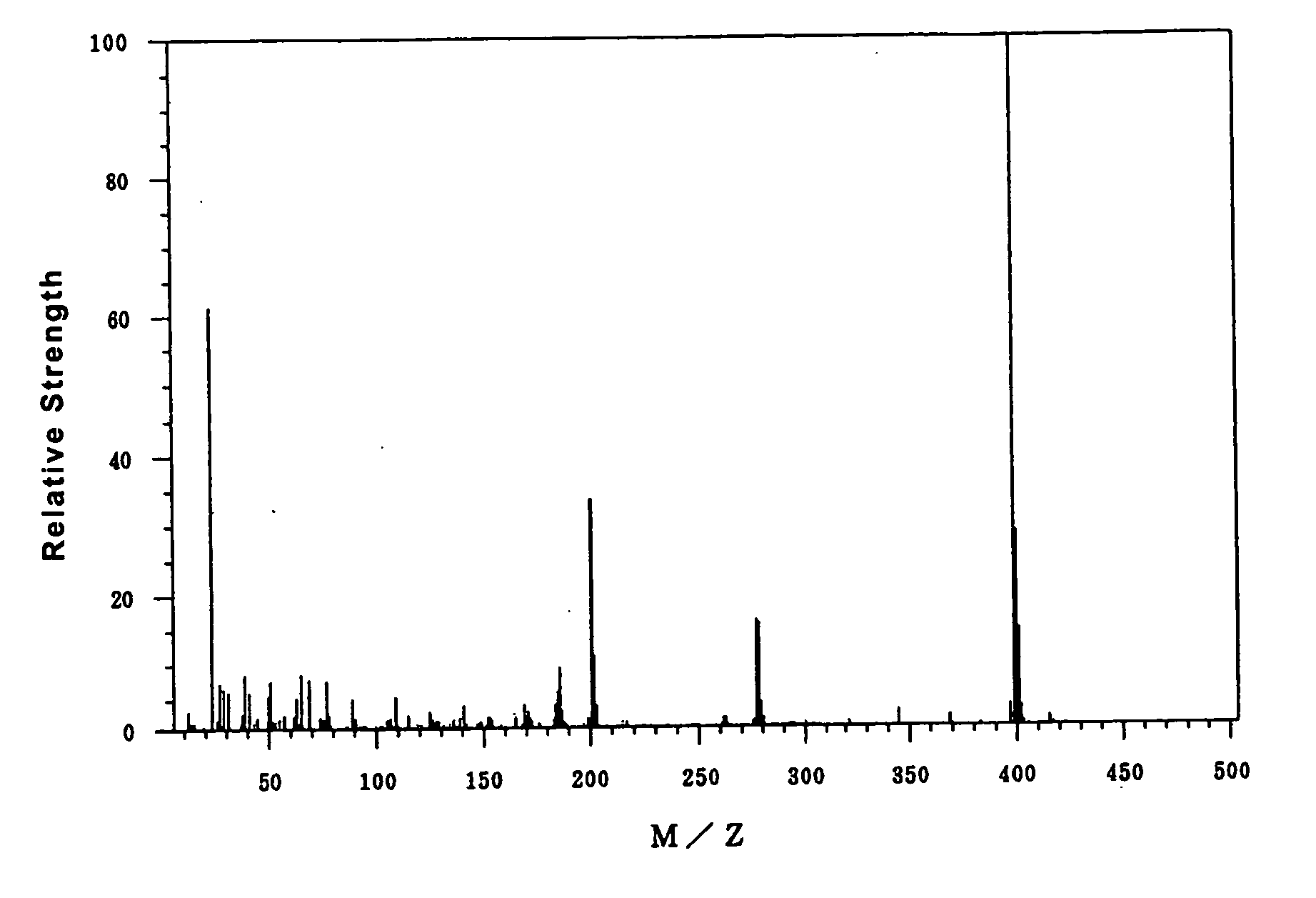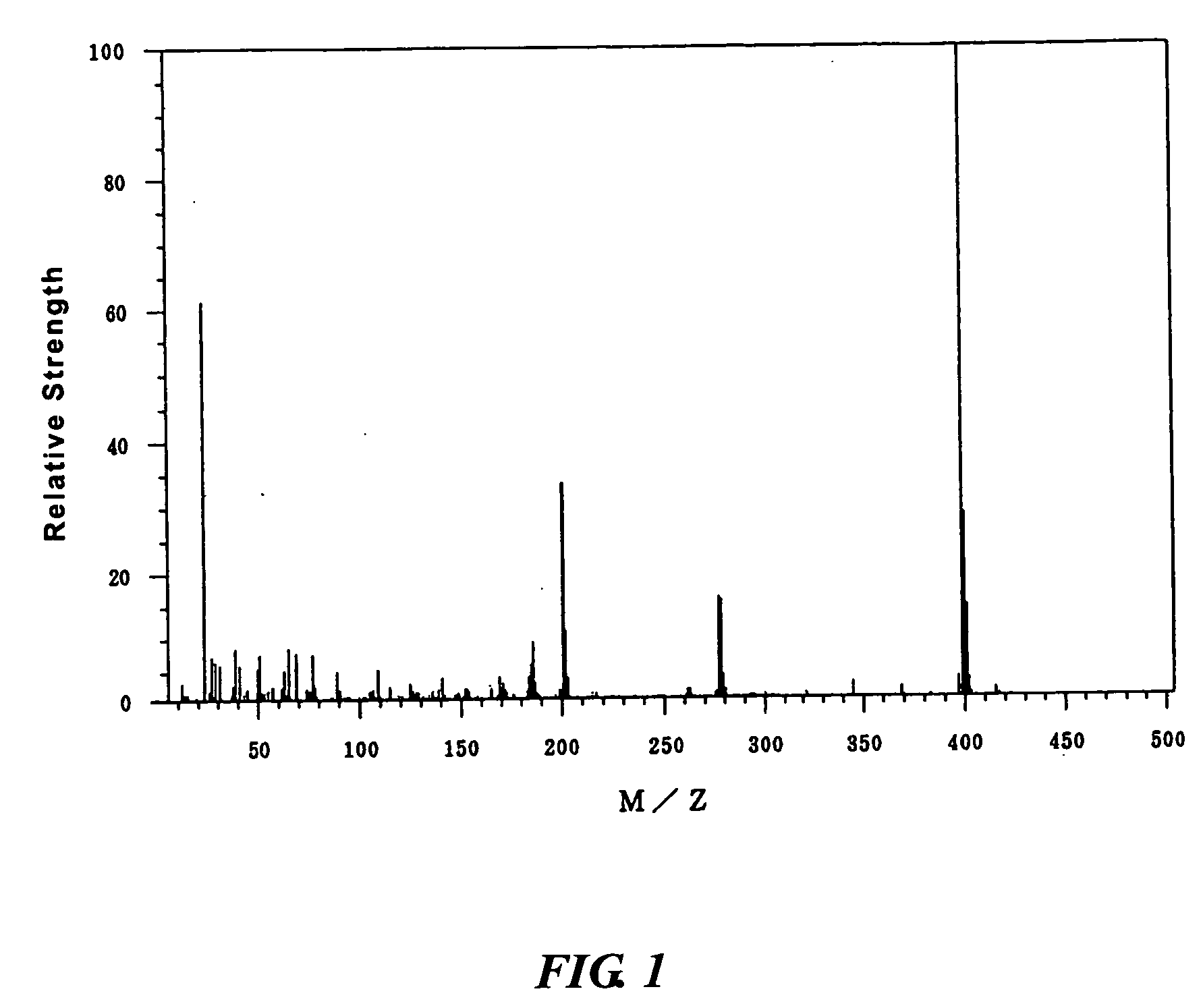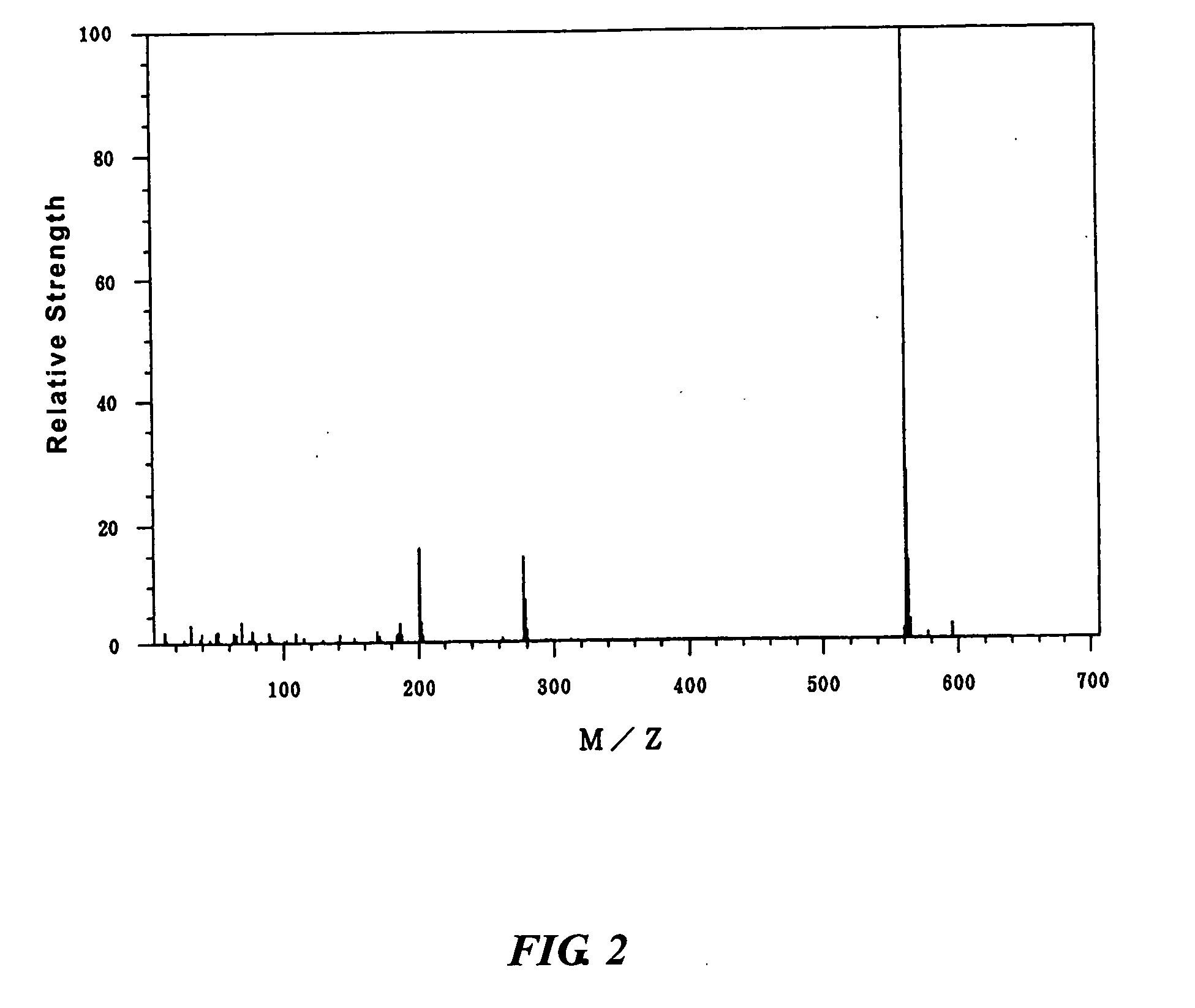Onium salt compound and radiation-sensitive resin composition
a technology of radiation-sensitive resin and compound, which is applied in the direction of photosensitive materials, auxillary/base layers of photosensitive materials, instruments, etc., can solve the problems of insufficient sensitivity of photoacid generators used for conventional chemically-amplified radiation-sensitive compositions, difficult to perform microfabrication with a line width of sub-quarter micron using near ultraviolet rays, and serious problem of composition storage stability
- Summary
- Abstract
- Description
- Claims
- Application Information
AI Technical Summary
Benefits of technology
Problems solved by technology
Method used
Image
Examples
synthesis example 1
30 g of 4-hydroxyphenyl diphenylsulfonium nonafluoro-n-butanesulfonate was dissolved in 300 g of dichloromethane in a reaction flask, in which the atmosphere was replaced with nitrogen. 17.9 g of n-butanesulfonyl chloride and 10.5 g of triethylamine were added in this order. The mixture was stirred for 20 minutes at room temperature. After the addition of 100 g of ion-exchanged water, the mixture was transferred to a separatory funnel, shaken, and allowed to stand still. The water layer was removed. After the addition of 300 ml of distilled water, the solution was shaken and allowed to stand still. The water layer was removed. The resulting dichloromethane solution was dried using anhydrous magnesium sulfate and filtered. After evaporating dichloromethane from the dichloromethane solution, the residual liquid was dried under reduced pressure to obtain 26.7 g of 4-n-butanesulfonyloxyphenyl diphenylsulfonium nonafluoro-n-butanesulfonate. This compound is indicated as “acid generator ...
synthesis example 2
30 g of 4-hydroxyphenyl diphenylsulfonium nonafluoro-n-butanesulfonate was dissolved in 300 g of dichloromethane in a reaction flask, in which the atmosphere was replaced with nitrogen. 33.1 g of nonafluoro-n-butanesulfonyl chloride and 10.5 g of triethylamine were added in this order. The mixture was stirred for 20 minutes at room temperature. After the addition of 100 g of ion-exchanged water, the mixture was transferred to a separatory funnel, shaken, and allowed to stand still. The water layer was removed. After the addition of 300 ml of distilled water, the solution was shaken and allowed to stand still. The water layer was removed. The resulting dichloromethane solution was dried using anhydrous magnesium sulfate and filtered. After evaporating dichloromethane from the dichloromethane solution, the residual liquid was dried under reduced pressure to obtain 26.7 g of 4-nonafluoro-n-butanesulfonyloxyphenyl diphenylsulfonium nonafluoro-n-butanesulfonate. This compound is indicat...
synthesis example 3
30 g of 4-hydroxyphenyl diphenylsulfonium nonafluoro-n-butanesulfonate was dissolved in 300 g of dichloromethane in a reaction flask, in which the atmosphere was replaced with nitrogen. 30.6 g of 1,1,2,2-tetrafluoro-2-(norbornan-2-yl)ethanesulfonyl chloride and 10.5 g of triethylamine were added in this order. The mixture was stirred for 20 minutes at room temperature. After the addition of 100 g of ion-exchanged water, the mixture was transferred to a separatory funnel, shaken, and allowed to stand still. The water layer was removed. After the addition of 300 ml of distilled water, the solution was shaken and allowed to stand still. The water layer was removed. The resulting dichloromethane solution was dried using anhydrous magnesium sulfate and filtered. After evaporating dichloromethane from the dichloromethane solution, the residual liquid was dried under reduced pressure to obtain 23.5 g of 4-[1,1,2,2-tetrafluoro-2-(norbornan-2-yl)ethanesulfonyloxy]phenyl diphenylsulfonium no...
PUM
| Property | Measurement | Unit |
|---|---|---|
| width | aaaaa | aaaaa |
| wavelength | aaaaa | aaaaa |
| wavelength | aaaaa | aaaaa |
Abstract
Description
Claims
Application Information
 Login to View More
Login to View More - R&D
- Intellectual Property
- Life Sciences
- Materials
- Tech Scout
- Unparalleled Data Quality
- Higher Quality Content
- 60% Fewer Hallucinations
Browse by: Latest US Patents, China's latest patents, Technical Efficacy Thesaurus, Application Domain, Technology Topic, Popular Technical Reports.
© 2025 PatSnap. All rights reserved.Legal|Privacy policy|Modern Slavery Act Transparency Statement|Sitemap|About US| Contact US: help@patsnap.com



